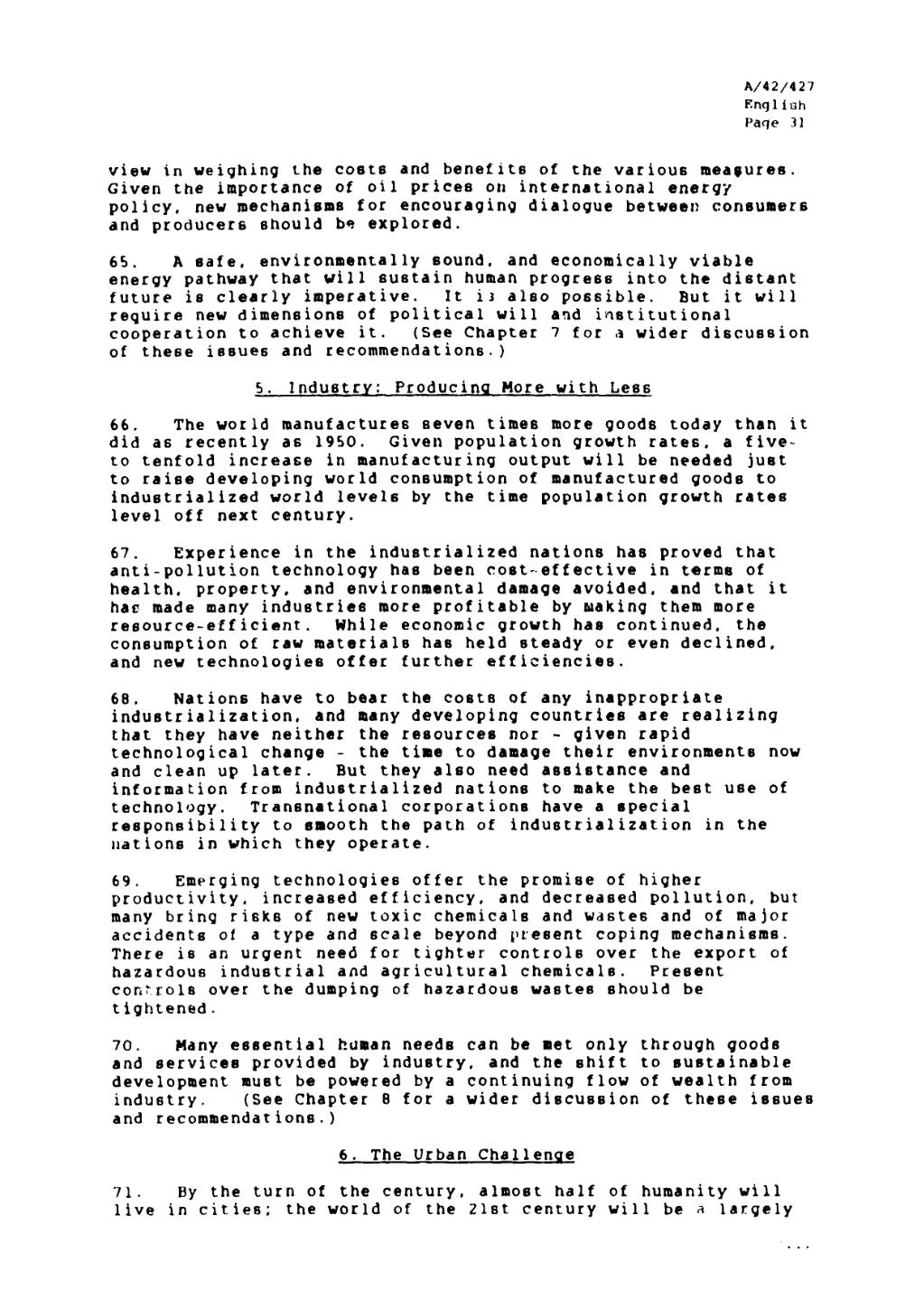A/42/427
English
Page 31
view in weighing the costs and benefits of the various measures. Given the importance of oil prices on international energy policy, new mechanisms for encouraging dialogue between consumers and producers should be explored.
65. A safe, environmentally sound, and economically viable energy pathway that will sustain human progress into the distant future is clearly imperative. It is also possible. But it will require new dimensions of political will and institutional cooperation to achieve it. (See Chapter 7 for a wider discussion of these issues and recommendations.)
5. Industry: Producing More with Less
66. The world manufactures seven times more goods today than it did as recently as 1950. Given population growth rates, a five-to tenfold increase in manufacturing output will be needed just to raise developing world consumption of manufactured goods to industrialized world levels by the time population growth rates level off next century.
67. Experience in the industrialized nations has proved that anti-pollution technology has been cost-effective in terms of health, property, and environmental damage avoided, and that it had made many industries more profitable by making them more resource-efficient. While economic growth has continued, the consumption of raw materials has held steady or even declined, and new technologies offer further efficiencies.
68. Nations have to bear the costs of any inappropriate industrialization, and many developing countries are realizing that they have neither the resources nor – given rapid technological change – the time to damage their environments now and clean up later. But they also need assistance and information from industrialized nations to make the best use of technology. Transnational corporations have a special responsibility to smooth the path of industrialization in the nations in which they operate.
69. Emerging technologies offer the promise of higher productivity, increased efficiency, and decreased pollution, but many bring risks of new toxic chemicals and wastes and of major accidents of a type and scale beyond present coping mechanisms. There is an urgent need for tighter controls over the export of hazardous industrial and agricultural chemicals. Present controls over the dumping of hazardous wastes should be tightened.
70. Many essential human needs can be met only through goods and services provided by industry, and the shift to sustainable development must be powered by a continuing flow of wealth from industry. (See Chapter 8 for a wider discussion of these issues and recommendations.)
6. The Urban Challenge
71. By the turn of the century, almost half of humanity will live in cities; the world of the 21st century will be a largely
/…
